Ulrich Winkler Lectures
15th Ulrich Winkler Lecture
Wednesday, May 08th 2024, 6:00 pm, HS 101 at the Catholic-Theological Faculty of the University of Salzburg (Universitätsplatz 1, Salzburg, ground floor)
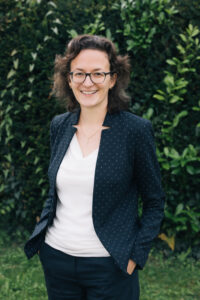
Lecturer: Prof.in Dr. Michaela Quast-Neulinger
Topic: No women, no peace? The Document on Fraternity in the Context of Women’s Rights, Interreligious Dialogue and Religious Diplomacy for Peace
Hans Küng once said: “There can be no world peace without religious peace”. The dialogue of religions, the self-enlightenment of religions about their potential for violence is of crucial importance for the peaceful coexistence of human beings. On 4 February 2019, Pope Francis and Grand Imam Al-Tayyeb signed the “Document on Human Fraternity”. Both see this document essentially as a contribution to the global responsibility of religions for peace. Hardly any attention is paid to the fact that for the first time in an interreligious document the protection and rights of women are explicitly addressed. The lecture provides an introduction to the outstanding aspects of the “Document on Fraternity”, in particular the clear commitment to civil liberties, civil rights and women’s rights. At the same time, it can be observed that the theology of religions as well as the dialogue of religions are still strongly influenced by men. How is the peace that the Pope and the Grand Imam are striving for possible when women are largely excluded from the dialogue between religions? What is the context of peace work, dialogue and women’s rights?
14th Ulrich Winkler Lecture
Thursday, April 18th 2024, 6:00 pm, HS 101 at the Catholic-Theological Faculty of the University of Salzburg (Universitätsplatz 1, Salzburg, ground floor)
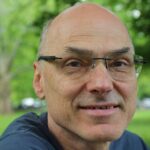
Lecturer: Dr. theol. Christian Hackbarth-Johnson
Topic: The kingdom of God on earth. From Religious Socialism to Integral Yoga. On the life of the Protestant pastor Heinz Kappes (30.11.1893-1.5.1988)
After the First World War, the young pastor of the Baden regional church, Heinz Kappes, joined the movement of religious socialists. In May 1933, he was relieved of his office due to repeated sermons against National Socialism and subsequently emigrated to Palestine with his family. Inspired by Martin Buber, who had already joined the Quakers in Germany, he began to give lectures on mysticism. In 1943 he came into contact with the works of the Indian yogi and spiritual philosopher Sri Aurobindo, who saw the aim of his “Integral Yoga” in preparing a divine life on earth. This would require a new step in the evolution of life, the descent of a “supramental consciousness.” It was not until 1948 that Kappes returned to Germany, where he was rehabilitated and worked for 10 years in church service as a religion teacher and in the diaconal service. As a co-founder of the Karlsruhe Society for Christian-Jewish Cooperation, he traveled to the United States in 1950 and became acquainted with the Alcoholics Anonymous movement. In the 1960s, after his retirement, he traveled twice to the Sri Aurobindo Ashram in South India for extended stays, and subsequently translated Sri Aurobindo’s extensive major works into German and headed the German branch of the Sri Aurobindo Society. He also translates the works of Alcoholics Anonymous. In the 1970s, he became the pastor of this movement, which established itself in the German-speaking world with his help. In accordance with Sri Aurobindo’s teaching that the progress of humanity is based on the spiritual progress of individuals, he turned away from the socialist ideas of his early days and devoted himself to individual pastoral care in addition to his work as a translator and lecturer. After his death on May 1, 1988, the circle of friends of his students and companions preserved his memory until its dissolution in 2014. Heinz Kappes is another example of a European Christian who came to an interreligious understanding of spirituality through his encounter with Indian spirituality.
13th Ulrich Winkler Lecture
Tuesday, March 12th 2024, 6:00 pm, HS 101 at the Catholic-Theological Faculty of the University of Salzburg (Universitätsplatz 1, Salzburg, ground floor)
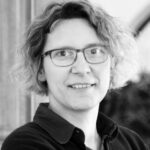
Lecturer: Prof. Dr. Anne Koch (University of Freiburg in Breisgau)
Topic: Are we already more-than-human-beings? Or would it still be good to have a religious anthropology?
For some time now, the human being has been questioned as the basis of knowledge, especially in this generic masculine. Systemic and (post)structuralist theories of the last decades can do without it, critique of racism, decolonial thinking and the relational turn expose historical and cultural conditions that delegitimize an anthropocentric perspective and instead consider class situations, positions of power, etc. to be much more important for explaining religion. And now there is also critical posthumanism – not to be confused with transhumanism – which brings other-than-human agency into play and thinks about the positionality of humans in the relational paradigm in cultural studies even more radically.
What does this mean for a theological and religious-scientific (post)anthropology?
Anne Koch, Professor of Religious Studies, University of Freiburg. From 2015 to 2018 she was Professor of Religious Studies in Salzburg and colleague of Ulrich Winkler.
12th Ulrich Winkler Lecture
Tuesday, January 23rd 2024, 6:00 pm, HS 107 at the Catholic-Theological Faculty of the University of Salzburg (Universitätsplatz 1, Salzburg, ground floor)
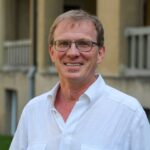
Lecturer: Prof. Dr. Norbert Hintersteiner (Münster)
Topic: „Resisting Translation?“ Jesuits at the Mughal CourtIndo-Persian Mission between Cultural Translation and Interreligious Controversy
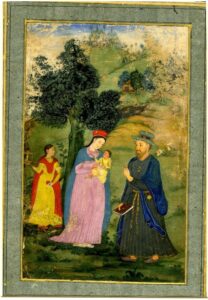
Cultural translation and interreligious persuasion are central aspects of Jesuit mission and in the cross-cultural transmission of the Christian faith. The third Jesuit mission to the Indian Mughal court (1595-1614) by Jeronimo de Ezpeleta y Goni, better known as Jerome Xavier, provides a striking example in this regard. His Persian theological works Mir’at al-quods (Mirror of Holiness) and Āʾīna-yi ḥaqq-namā (Mirror of Truth) are formulated in a context-sensitive manner within the horizon of a Muslim-Hindu milieu and in a dialogical, albeit critical, examination of its Islamic theological traditions. However, a fierce apologetic reaction to Āʾīna-yi ḥaqq-namā by an eminent Shiite scholar in Isfahan (Sayyid Aḥmad ʿAlavī) provoked a long and sustained interreligious polemical controversy about central beliefs between Islam and Catholic Christianity in the 17th century. Does the cultural translation of Christianity in the interreligious sphere necessarily come up against insurmountable religious boundaries – and sometimes fierce resistance?
Prof. Dr. Norbert Hintersteiner
Director of the Institute for Missiology and Non-European Theologies at the Faculty of Catholic Theology, University of Münster and lifelong friend of Ulrich Winkler.
11th Ulrich Winkler Lecture
Tuesday, November 21st 2023, 6:00 pm, HS 101 at the Catholic-Theological Faculty of the University of Salzburg (Universitätsplatz 1, Salzburg, ground floor)
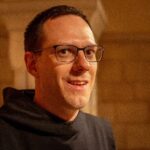
Lecturer: P. Dr. Simeon Gloger OSB (Dormitio-Abtei, Jerusalem)
Topic: “A temple of praise.” Power, Cult and Identity in the Book of Daniel
Using the example of Dan 3, the connections between concepts of power and cult in the Greek Book of Daniel will be examined. Among other things, it becomes apparent that the prayer of Azariah (Dan 3:26-45) and the hymn of praise of the three men in the fiery furnace (Dan 3:51-90) are highly theological, artfully composed and profoundly biblically networked texts, which take the entire chapter of Dan 3 with its almost 100 verses to another level from the perspective of reception aesthetics. Conventional constructions of space and time are exploded and questions of power and powerlessness, worship and idolatry and, last but not least, identity and anonymity are raised.
10th Ulrich Winkler Lecture
Wednesday, October 11th 2023, 6:00 pm, HS 101 at the Catholic-Theological Faculty of the University of Salzburg (Universitätsplatz 1, Salzburg, ground floor)
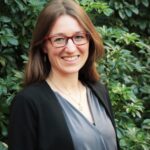
Lecturer: Prof. Dr. Judith Gruber (KU Leuven/Belgium)
Topic: “Letting all Voices speak”. Theologie Interkulturell und ihre de/kolonialisierenden Repräsentationspolitiken
- registration required: https://veranstaltungen.plus.ac.at
- lecture will be streamed live under: https://uni-salzburg.webex.com/meet/martin.roetting
The lecture will be held in German.
8th Ulrich Winkler Lecture
Wednesday, April 19th 2023, 6:00 pm, HS 101 at the Catholic-Theological Faculty of the University of Salzburg (Universitätsplatz 1. Salzburg, ground floor)
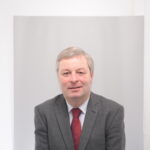
Lecturer: Univ.-Prof. DDr. Franz Gmainer-Pranzl (Centre for Intercultural Theology and Study of Religions, Salzburg)
Topic: Mission. Ein interkulturell-theologischer Blick auf eine exzentrische Kirche
- registration required: https:veranstaltungen.plus.ac.at
The lecture will be held in German.
7th Ulrich Winkler Lecture
Monday, January 23rd 2023, 6:00 pm, HS 101 at the Catholic-Theological Faculty of the University of Salzburg (Universitätsplatz 1, Salzburg, ground floor)
Lecturer:
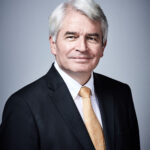
em. Univ.-Prof. Dr. Heinrich Schmidinger
Topic:
Monotheismus = Intoleranz? Polytheismus = Toleranz? Hinterfragung einer verbreiteten These
- registration required: https://veranstaltungen.plus.ac.at
The lecture will be held in German.
6th Ulrich Winkler Lecture
Thursday, November 17th 2022, 6:00 pm, HS 101 at the Catholic-Theological Faculty of the University of Salzburg (Universitätsplatz 1, Salzburg, ground floor)
Lecturer:
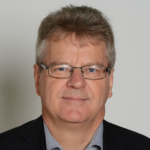
Prof. Dr. Reinhold Bernhardt (University of Basel)
Topic:
Christologie im Kontext der Religionstheologie
The lecture will be held in German
5th Ulrich Winkler Lecture
Tuesday, October 11th 2022, 6:00 pm, HS 101 at the Catholic-Theological Faculty of the University of Salzburg (Universitätsplatz 1, Salzburg, ground floor).
Lecturer:

HS-Prof.in Dr.in Bettina Brandstetter (Private Pädagogische Hochschule der Diözese Linz)
Topic:
Die Migrationsandere und ihre Religion:Von der Notwendigkeit einer Diskurssensibilität im Bildungssystem
The lecture will be held in German.
4th Ulrich Winkler Lecture
Thursday, June 2nd 2022, 6:00 pm, HS 101 at the Catholic-Theological Faculty of the University of Salzburg (Universitätsplatz 1, Salzburg, ground floor).
Lecturer:
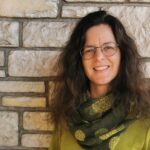
Ass.-Prof.in Dr.in Sigrid Rettenacher (KU Linz)
Topic:
Unsagbares. Ungesagtes. Unsägliches.
Kirchliche Identitäts- und Diskurspolitiken im Zeichen von Differenz(-erfahrungen)
- registration required: https://veranstaltungen.plus.ac.at
The lecture will be held in German.
3rd Ulrich Winkler Lecture
Wednesday, April 6th 2022, 6:00 pm, HS 101 at the Catholic-Theological Faculty of the University of Salzburg (Universitätsplatz 1, Salzburg, ground floor).
Lecturer:

Prof. Dr. Andreas Nehring (University of Erlangen)
Topic:
Spiritualität zwischen Religion und Säkularisierung
- registration required: https://veranstaltungen.plus.ac.at
The lecture will be held in German.
2nd Ulrich Winkler Lecture
Wednesday, March 16th 2022, 6:00 pm, HS 101 at the Catholic-Theological Faculty of the University of Salzburg (Universitätsplatz 1, Salzburg, ground floor).
Lecturer:
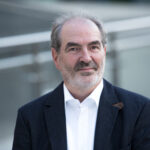
Prof. Dr. Perry Schmidt-Leukel (University of Münster)
Topic:
Erleuchtungsgeist und Heiliger Geist. Śāntidevas Bodhisattva-Ideal aus christlicher Sicht
registration required: https://veranstaltungen.plus.ac.at
The lecture will be held in German.
1st Ulrich Winkler Lecture
Thursday, October 14th 2021, 6:00 pm, HS 101 at the Catholic-Theological Faculty of the University of Salzbur (Universitätsplatz 1, Salzburg, ground floor).
Lecturer:
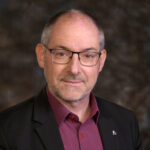
P. Dr. Christian Rutishauser SJ (Munich)
Topic:
Der Blick der Andern – Jüdische Denker zu Christentum und zum jüdisch-christlichen Dialog
The lecturers will be held in German.





